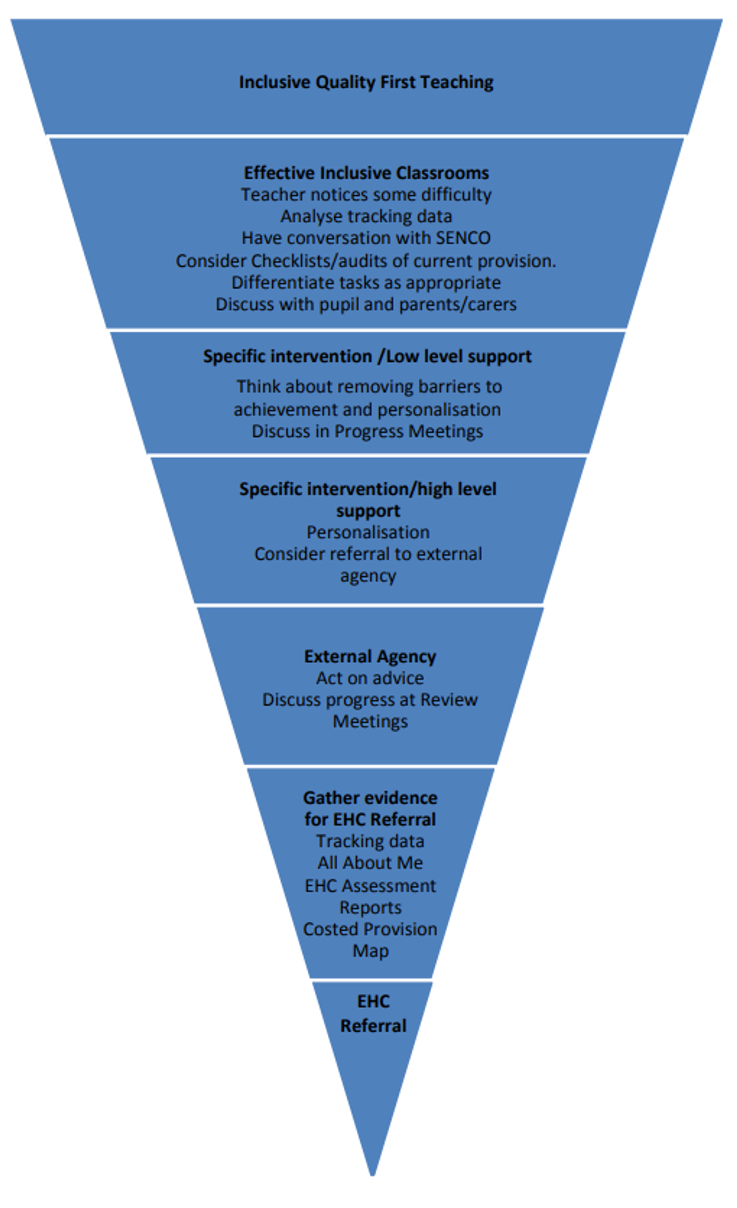Where necessary, additional interventions and personalised support is implemented to ensure that pupils with special educational needs and disabilities (SEND) can access the curriculum, make progress, and achieve the outcomes outlined in their Education, Health and Care Plans (EHCPs) or individual support profiles.
These tailored strategies are developed collaboratively with input from teaching staff, the SENDCo, external professionals, and families. They are reviewed regularly to ensure they remain responsive to the pupil’s evolving needs.
Provision may include:
- In-Class Support from Teaching Assistants (TAs): Skilled TAs provide targeted support within the classroom environment, helping pupils to engage with learning tasks, access differentiated materials, and develop independence. Their role is to reinforce teaching, scaffold understanding, and promote inclusive participation.
- Targeted Small Group Interventions: Pupils may be withdrawn for short periods to participate in structured intervention groups focused on specific areas such as literacy, numeracy, emotional regulation, or social communication. These sessions are designed to accelerate progress and build confidence in a supportive setting.
- Access to Specialist Services: Where appropriate, pupils may receive input from external professionals such as Educational Psychologists, Speech and Language Therapists, Occupational Therapists, or CAMHS practitioners. These services contribute to assessment, strategy development, and direct support, ensuring a holistic approach to meeting complex needs.
- Use of Assistive Technology and Differentiated Resources: Pupils may be provided with ICT equipment (e.g. laptops, tablets, speech-to-text software) to support written output, organisation, or communication. Learning materials are adapted to suit individual needs, including simplified texts, visual aids, enlarged print, or alternative formats.
- These interventions are part of a graduated approach to SEND support and are designed to promote independence, raise attainment, and enhance wellbeing. All provision is monitored for impact and adjusted as necessary to ensure that pupils continue to make meaningful progress.
